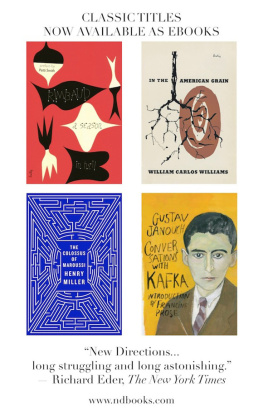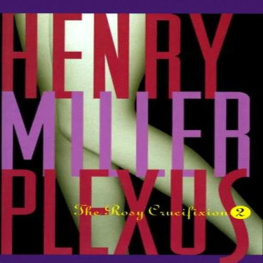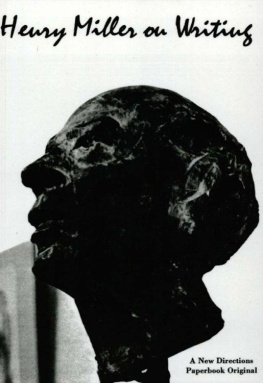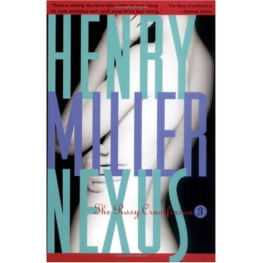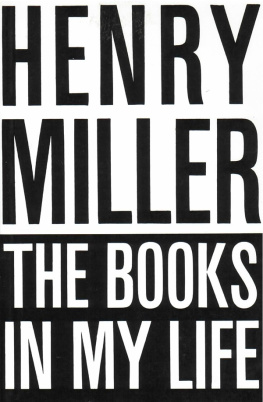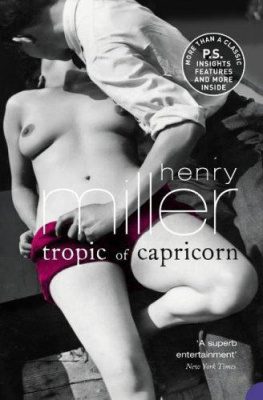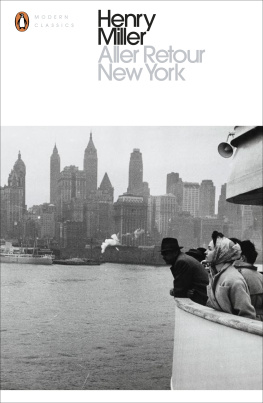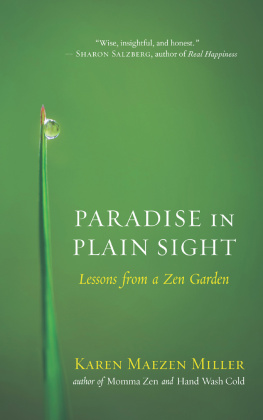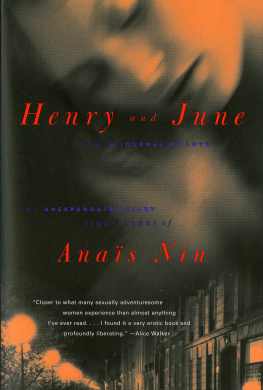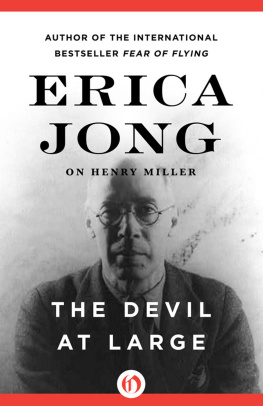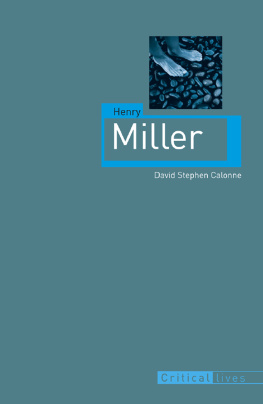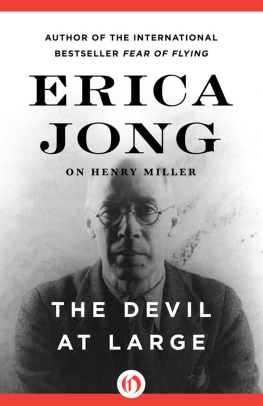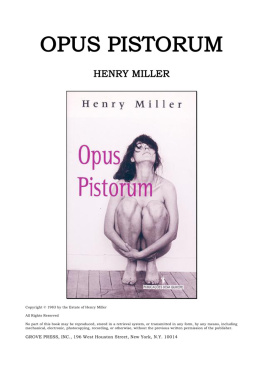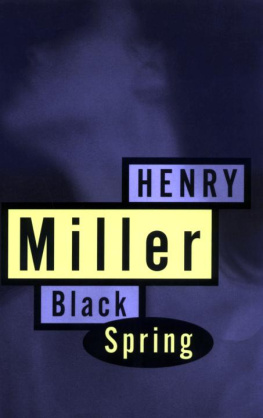Henry Miller - A Devil in Paradise
Here you can read online Henry Miller - A Devil in Paradise full text of the book (entire story) in english for free. Download pdf and epub, get meaning, cover and reviews about this ebook. year: 1956, genre: Detective and thriller. Description of the work, (preface) as well as reviews are available. Best literature library LitArk.com created for fans of good reading and offers a wide selection of genres:
Romance novel
Science fiction
Adventure
Detective
Science
History
Home and family
Prose
Art
Politics
Computer
Non-fiction
Religion
Business
Children
Humor
Choose a favorite category and find really read worthwhile books. Enjoy immersion in the world of imagination, feel the emotions of the characters or learn something new for yourself, make an fascinating discovery.
- Book:A Devil in Paradise
- Author:
- Genre:
- Year:1956
- Rating:5 / 5
- Favourites:Add to favourites
- Your mark:
- 100
- 1
- 2
- 3
- 4
- 5
A Devil in Paradise: summary, description and annotation
We offer to read an annotation, description, summary or preface (depends on what the author of the book "A Devil in Paradise" wrote himself). If you haven't found the necessary information about the book — write in the comments, we will try to find it.
A Devil in Paradise — read online for free the complete book (whole text) full work
Below is the text of the book, divided by pages. System saving the place of the last page read, allows you to conveniently read the book "A Devil in Paradise" online for free, without having to search again every time where you left off. Put a bookmark, and you can go to the page where you finished reading at any time.
Font size:
Interval:
Bookmark:
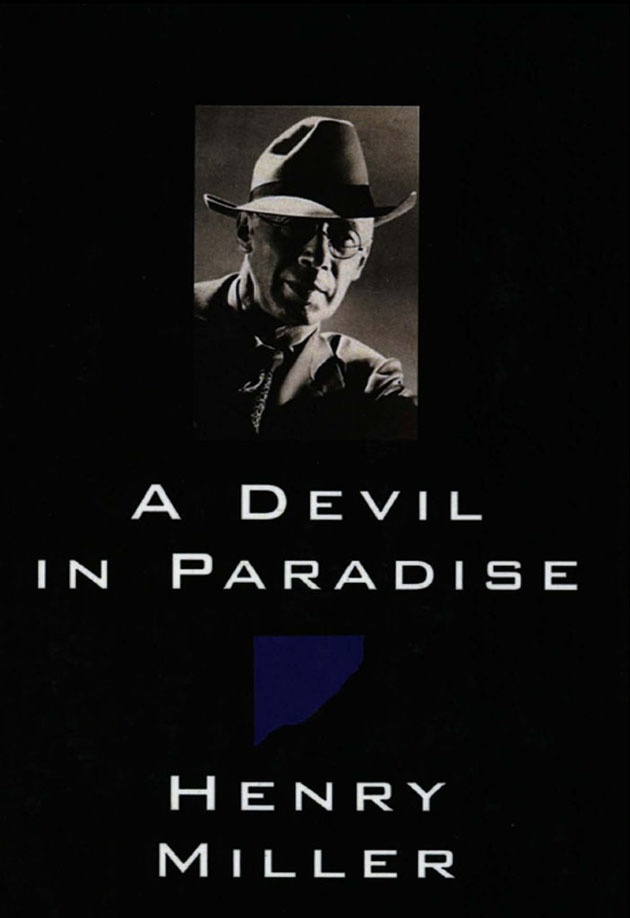
IN P ARADISE
Born in Paris, January 17, 1887, at 7:00 or 7:15 P.M.
Died in Paris, August 31,1954.
It was Anas Nin who introduced me to Conrad Moricand. She brought him to my studio in the Villa Seurat one day in the fall of 1936. My first impressions were not altogether favorable. The man seemed somber, didactic, opinionated, self-centered. A fatalistic quality pervaded his whole being.
It was late afternoon when he arrived, and after chatting a while, we went to eat in a little restaurant on the Avenue dOrlans. The way he surveyed the menu told me at once that he was finicky. Throughout the meal he talked incessantly, without its spoiling his enjoyment of the food. But it was the kind of talk that does not go with food, the kind that makes food indigestible.
There was an odor about him which I could not help but be aware of. It was a mlange of bay rum, wet ashes and tabac gris, tinctured with a dash of some elusive, elegant perfume. Later these would resolve themselves into one unmistakable scentthe aroma of death.
I had already been introduced to astrologic circles before meeting Moricand. And in Eduardo Sanchez, a cousin of Anas Nin, I had found a man of immense erudition, who, on the advice of his analyst, had taken up astrology therapeutically, so to speak. Eduardo often reminded me of the earthworm, one of Gods most useful creatures, it is said. His powers of ingestion and digestion were stupendous. Like the worm, his labors were primarily for the benefit of others, not himself. At the time Eduardo was engrossed in a study of the Pluto-Neptune-Uranus conjunctions. He had delved deep into history, metaphysics and biography in search of material to corroborate his intuitions. And finally he had begun work on the great theme: Apocatastasis.
With Moricand I entered new waters. Moricand was not only an astrologer and a scholar steeped in the hermetic philosophies, but an occultist. In appearance there was something of the mage about him. Rather tall, well built, broad shouldered, heavy and slow in his movements, he might have been taken for a descendant of the American Indian family. He liked to think, he later confided, that there was a connection between the name Moricand and Mohican. In moments of sorrow there was something slightly ludicrous about his expression, as if he were consciously identifying himself with the last of the Mohicans. It was in such moments that his square head with its high cheek bones, his stolidity and impassivity, gave him the look of anguished granite.
Inwardly he was a disturbed being, a man of nerves, caprices and stubborn will. Accustomed to a set routine, he lived the disciplined life of a hermit or ascetic. It was difficult to tell whether he had adapted himself to this mode of life or accepted it against the grain. He never spoke of the kind of life he would have liked to lead. He behaved as one who, already buffeted and battered, had resigned himself to his fate. As one who could assimilate punishment better than good fortune. There was a strong feminine streak in him which was not without charm but which he exploited to his own detriment. He was an incurable dandy living the life of a beggar. And living wholly in the past!
Perhaps the closest description I can give of him at the outset of our acquaintance is that of a Stoic dragging his tomb about with him. Yet he was a man of many sides, as I gradually came to discover. He had a tender skin, was extremely susceptible, particularly to disturbing emanations, and could be as fickle and emotional as a girl of sixteen. Though he was basically not fair-minded, he did his utmost to be fair, to be impartial, to be just. And to be loyal, though by nature I felt that he was essentially treacherous. In fact, it was this undefinable treachery which I was first aware of in him, though I had nothing on which to base my feelings. I remember that I deliberately banished the thought from my mind, replacing it with the vague notion that here was an intelligence which was suspect.
What I looked like to him in those early days is a matter of conjecture on my part. He did not know my writings except for a few fragments which had appeared in translation in French revues. He, of course, knew my date of birth and had presented me with my horoscope shortly after I became acquainted with him. (If I am not mistaken, it was he who detected the error in my hour of birth which I had given as midnight instead of noon.)
All our intercourse was in French, in which I was none too fluent. A great pity, because he was not only a born conversationalist but a man who had an ear for language, a man who spoke French like a poet. Above all, a man who loved subtleties and nuances! It was a dual pleasure I enjoyed whenever we came togetherthe pleasure of receiving instruction (not only in astrology) and the pleasure of listening to a musician, for he used the language much as a musician would his instrument. In addition there was the thrill of listening to personal anecdotes about celebrities whom I knew only through books.
In brief, I was an ideal listener. And for a man who loves to talk, for a monologist especially, what greater pleasure could there be for him than in having an attentive, eager, appreciative listener?
I also knew how to put questions. Fruitful questions.
All in all, I must have been a strange animal in his eyes. An expatriate from Brooklyn, a francophile, a vagabond, a writer only at the beginning of his career, naive, enthusiastic, absorbent as a sponge, interested in everything and seemingly rudderless. Such is the image I retain of myself at this period. Above all, I was gregarious. (He was anything but.) And a Capricorn, though not of the same decan. In age we were but a few years apart.
Apparently I was something of a stimulant to him. My native optimism and recklessness complemented his ingrained pessimism and cautiousness. I was frank and outspoken, he judicious and reserved. My tendency was to exfoliate in all directions; he, on the other hand, had narrowed his interests and focused on them with his whole being. He had all the reason and logic of the French, whereas I often contradicted myself and flew off at tangents.
What we had in common was the basic nature of the Capricorn. In his Miroir dAstrologie he has summed up succinctly and discriminatingly these common factors to be found in the Capricorn type. Under Analogies he puts it thus, to give a few fragments:
Philosophers. Inquisitors. Sorcerers. Hermits. Gravediggers. Beggars.
Profundity. Solitude. Anguish.
Chasms. Caverns. Abandoned places.
Here are a few Capricorns of varying types which he gives: Dante, Michelangelo, Dostoevsky, El Greco, Schopenhauer, Tolstoy, Czanne, Edgar Allan Poe, Maxim Gorky.
Let me add a few of the more common qualities they possess, according to Moricand.
Grave, taciturn, closed. Love solitude, all that is mysterious, are contemplative.
They are sad and heavy.
They are born old.
They see the bad before the good. The weakness in everything leaps immediately to their eyes.
Penitence, regrets, perpetual remorse.
Cling to the remembrance of injuries done them.
Seldom or never laugh; when they do, it is a sardonic laugh.
Profound but heavy. Burgeon slowly and with difficulty. Obstinate and persevering. Indefatigable workers. Take advantage of everything to amass or progress.
Insatiable for knowledge. Undertake long-winded projects. Given to the study of complicated and abstract things.
Live on several levels at once. Can hold several thoughts at one and the same time.
Font size:
Interval:
Bookmark:
Similar books «A Devil in Paradise»
Look at similar books to A Devil in Paradise. We have selected literature similar in name and meaning in the hope of providing readers with more options to find new, interesting, not yet read works.
Discussion, reviews of the book A Devil in Paradise and just readers' own opinions. Leave your comments, write what you think about the work, its meaning or the main characters. Specify what exactly you liked and what you didn't like, and why you think so.

